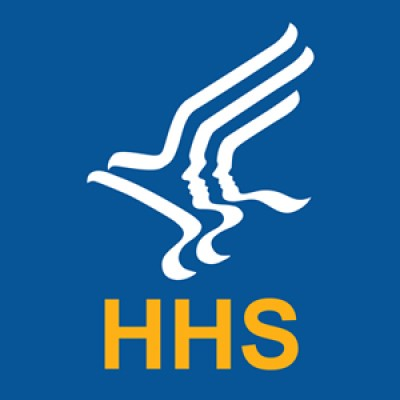Flu Season's Dark Shadow: A Growing Concern for Children and Vaccine Uncertainty
February 28, 2025, 10:18 pm

Location: United States, District of Columbia, Washington
Employees: 10001+
Founded date: 1953
Total raised: $56.52M

Location: United States, Georgia, Atlanta
Employees: 10001+
Founded date: 1946
As winter blankets the nation, a harsh flu season casts a long shadow over public health. The Centers for Disease Control and Prevention (CDC) recently released alarming data, revealing that this year's flu has led to an unprecedented number of hospitalizations, particularly among children. The statistics are stark: up to 910,000 hospitalizations since October, marking this season as one of the most severe in a decade. But the concern doesn't stop there. Health officials are increasingly worried about the potential for brain complications in young flu patients, raising questions about the effectiveness of vaccines and the future of public health policy.
The CDC's preliminary findings indicate that children who received this year's flu vaccine were significantly less likely to be hospitalized—between 64% and 78%—compared to their unvaccinated peers. Adults, too, saw a reduction in hospitalization rates, ranging from 41% to 55%. Yet, amidst these numbers lies a troubling reality: brain complications linked to the flu are on the radar, and they are not to be taken lightly.
Earlier this month, state health departments and hospitals issued warnings to doctors. They urged vigilance for flu patients exhibiting unusual symptoms such as seizures or hallucinations. These signs could indicate serious conditions like influenza-associated encephalopathy or encephalitis, with the latter being a dangerous inflammation of the brain. A more severe form, acute necrotizing encephalopathy, has also been identified, raising the stakes for parents and healthcare providers alike.
The CDC's analysis of child flu deaths since 2010 uncovered 166 cases with neurological complications. Most of these children were unvaccinated. However, this year's data shows nine deaths linked to these complications, with four involving the more severe subtype. The agency remains cautious, stating it is unclear if this marks a significant uptick in cases. The lack of regular tracking for these complications complicates the situation, leaving health officials grasping for clarity.
In California, Dr. Keith Van Haren from Stanford Medicine Children’s Health reported about 15 severe flu-related cases. While he acknowledged the potential for more cases, he refrained from disclosing the number of fatalities. This ambiguity only adds to the anxiety surrounding the flu season.
Despite the grim outlook, experts emphasize that these complications are rare. Parents are advised to seek medical attention if their child exhibits concerning symptoms, such as labored breathing. However, the message is clear: vigilance is crucial. Neurological complications tend to spike during severe flu seasons, possibly linked to specific strains of the virus. Survivors may face ongoing health issues, including seizures, casting a long shadow over their recovery.
As the flu season rages on, vaccine manufacturers are already preparing for next winter's flu shots. The Food and Drug Administration (FDA) typically convenes an advisory committee in March to select the flu strains for the upcoming season. However, this year's meeting has been abruptly canceled, leaving many questions unanswered. The cancellation raises eyebrows, especially with Robert F. Kennedy Jr. at the helm of the Department of Health and Human Services. Kennedy's history as a vaccine skeptic adds an additional layer of uncertainty to the vaccination landscape.
The abrupt cancellation of the Vaccines and Related Biological Products Advisory Committee (VRBPAC) meeting has left experts puzzled. Dr. Paul Offit, a member of the panel, expressed concern over the lack of communication regarding the decision. Without this crucial meeting, manufacturers may turn to the World Health Organization for guidance on flu strains, potentially complicating the vaccine development process.
This uncertainty comes at a time when the flu season is wreaking havoc across the country. The CDC's data paints a grim picture, with hospitalizations reaching alarming levels. The severity of this season has prompted discussions about the need for transparency in vaccine discussions. Experts stress the importance of public understanding regarding vaccine composition and recommendations.
Meanwhile, the Trump administration is reportedly considering cutting funding for Moderna's bird flu vaccine amid a record-breaking outbreak affecting poultry and cattle. This situation has led to skyrocketing egg prices and raised concerns about the potential for broader transmission to humans. The intertwining of flu and bird flu issues underscores the fragility of public health in the face of evolving viral threats.
As the flu season continues, parents are left grappling with uncertainty. The dual threat of severe flu complications and vaccine uncertainty creates a perfect storm. The message is clear: stay informed, stay vigilant, and prioritize health. The stakes are high, and the need for effective public health strategies has never been more critical. The flu season may be harsh, but the response must be even stronger. The health of our children hangs in the balance.
The CDC's preliminary findings indicate that children who received this year's flu vaccine were significantly less likely to be hospitalized—between 64% and 78%—compared to their unvaccinated peers. Adults, too, saw a reduction in hospitalization rates, ranging from 41% to 55%. Yet, amidst these numbers lies a troubling reality: brain complications linked to the flu are on the radar, and they are not to be taken lightly.
Earlier this month, state health departments and hospitals issued warnings to doctors. They urged vigilance for flu patients exhibiting unusual symptoms such as seizures or hallucinations. These signs could indicate serious conditions like influenza-associated encephalopathy or encephalitis, with the latter being a dangerous inflammation of the brain. A more severe form, acute necrotizing encephalopathy, has also been identified, raising the stakes for parents and healthcare providers alike.
The CDC's analysis of child flu deaths since 2010 uncovered 166 cases with neurological complications. Most of these children were unvaccinated. However, this year's data shows nine deaths linked to these complications, with four involving the more severe subtype. The agency remains cautious, stating it is unclear if this marks a significant uptick in cases. The lack of regular tracking for these complications complicates the situation, leaving health officials grasping for clarity.
In California, Dr. Keith Van Haren from Stanford Medicine Children’s Health reported about 15 severe flu-related cases. While he acknowledged the potential for more cases, he refrained from disclosing the number of fatalities. This ambiguity only adds to the anxiety surrounding the flu season.
Despite the grim outlook, experts emphasize that these complications are rare. Parents are advised to seek medical attention if their child exhibits concerning symptoms, such as labored breathing. However, the message is clear: vigilance is crucial. Neurological complications tend to spike during severe flu seasons, possibly linked to specific strains of the virus. Survivors may face ongoing health issues, including seizures, casting a long shadow over their recovery.
As the flu season rages on, vaccine manufacturers are already preparing for next winter's flu shots. The Food and Drug Administration (FDA) typically convenes an advisory committee in March to select the flu strains for the upcoming season. However, this year's meeting has been abruptly canceled, leaving many questions unanswered. The cancellation raises eyebrows, especially with Robert F. Kennedy Jr. at the helm of the Department of Health and Human Services. Kennedy's history as a vaccine skeptic adds an additional layer of uncertainty to the vaccination landscape.
The abrupt cancellation of the Vaccines and Related Biological Products Advisory Committee (VRBPAC) meeting has left experts puzzled. Dr. Paul Offit, a member of the panel, expressed concern over the lack of communication regarding the decision. Without this crucial meeting, manufacturers may turn to the World Health Organization for guidance on flu strains, potentially complicating the vaccine development process.
This uncertainty comes at a time when the flu season is wreaking havoc across the country. The CDC's data paints a grim picture, with hospitalizations reaching alarming levels. The severity of this season has prompted discussions about the need for transparency in vaccine discussions. Experts stress the importance of public understanding regarding vaccine composition and recommendations.
Meanwhile, the Trump administration is reportedly considering cutting funding for Moderna's bird flu vaccine amid a record-breaking outbreak affecting poultry and cattle. This situation has led to skyrocketing egg prices and raised concerns about the potential for broader transmission to humans. The intertwining of flu and bird flu issues underscores the fragility of public health in the face of evolving viral threats.
As the flu season continues, parents are left grappling with uncertainty. The dual threat of severe flu complications and vaccine uncertainty creates a perfect storm. The message is clear: stay informed, stay vigilant, and prioritize health. The stakes are high, and the need for effective public health strategies has never been more critical. The flu season may be harsh, but the response must be even stronger. The health of our children hangs in the balance.
